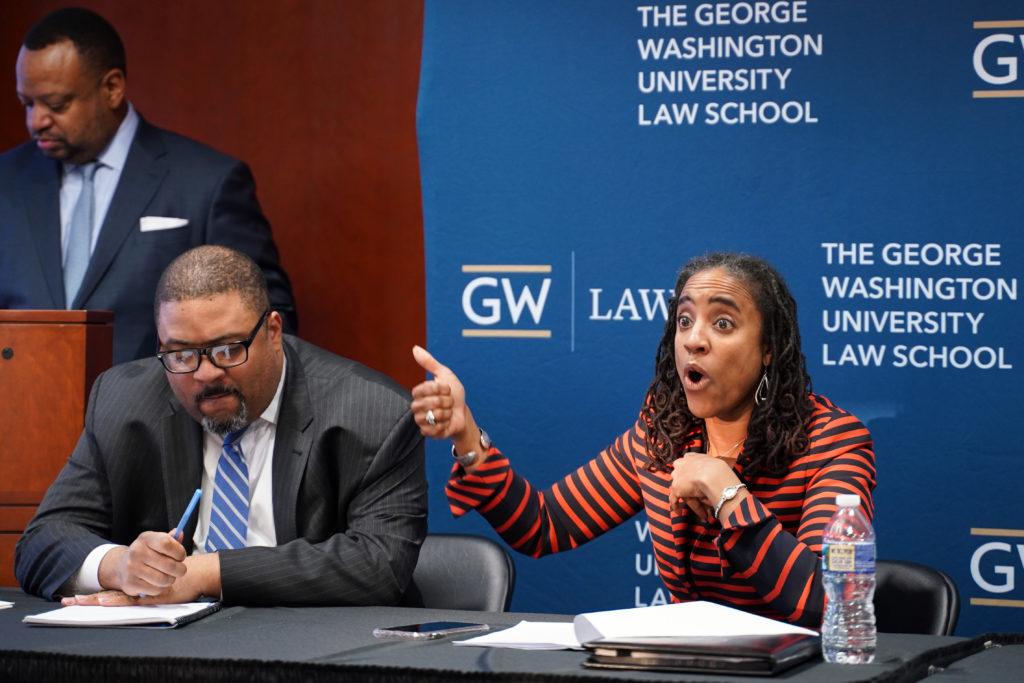A panel of lawyers and law professors discussed the policing and unlawful shootings of black Americans at a law school event Monday.
The discussion was moderated by Roger Fairfax, the law school’s Jeffrey and Martha Kohn senior associate dean for academic affairs and a research professor of law, and co-sponsored by the law school’s Criminal Law Initiative and the GW Black Law Student Association. Experts in criminal procedure, law enforcement misconduct and the juvenile justice system discussed the psychological toll of shootings on black children and the high standard prosecutors face to convict police officers.
Kristin Henning, the director of the Juvenile Justice Clinic at Georgetown University’s law school, said the conversation about black children who have been killed by police officers “really should be unconscionable.”
“We live in a country that purports to care vastly and value our children tremendously,” Henning said. “But what you see on the street is literally nothing short of summary execution.”
The “aggressive hyper-policing” of black communities is “socializing an entire generation of black youth to resent and resist police officers,” Henning said.
The event follows a series of high-profile police shootings of black Americans in the past five years, including the killings of Michael Brown in 2014, Tamir Rice in 2014 and Philando Castile in 2016. Two of those cases resulted in wrongful death settlements, but none resulted in a guilty verdict for the officers.
Jared Fishman, a prosecutor in the Civil Rights Division at the Department of Justice, said that even in cases including overwhelming video evidence, police officers who are accused of unlawfully shooting civilians are likely to be acquitted by a jury.
“Prosecuting police officers for abuse has got to be one of the hardest types of cases to handle in the criminal justice system,” Fishman said. “When you have a shooting case, jurors are very unwilling to find that someone had acted willfully.”
Fishman added that jurors are also influenced by a variety of other factors, including systemic racism and an inherent desire not to second-guess officers.
Alvin Bragg, a visiting professor at New York Law School, formerly served as the chief deputy attorney general of New York and led a government entity created in 2015 to increase investigations into police misconduct. Bragg said his team of investigators faced resistance from some officers, including one who questioned if the inquiry was a “witch hunt.”
“If you did something wrong, we’re going to find out – and if you’re not, you should be happy to know that then we will transparently disclose what occurred,” Bragg recalled telling officers.
In the face of growing pressure from black communities to investigate and prosecute reckless police officers, Bragg said his team needed to build rapport with individuals on both sides.
Renee Hutchins, a visiting professor of law, said limiting the circumstances in which officers are allowed to use lethal force would also reduce the number of violent encounters between black Americans and police officers.
“Let’s reduce the number of interactions that can actually accelerate up into violent interactions,” she said. “The way that we are policing communities of color in this country is corrosive to democracy.”





